Appleby 2022 - A Bela Varadi photo-essay
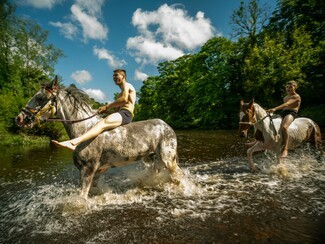
This year the traditional Appleby Horse Fair was held on the second week of June from Thursday to Sunday. Thousands of Travellers came to the small Cumbrian village to trade horses, exchange experiences, meet, and have a good time.
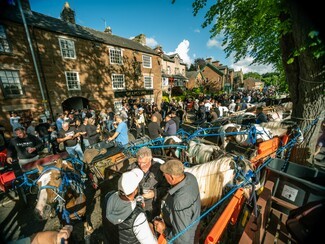
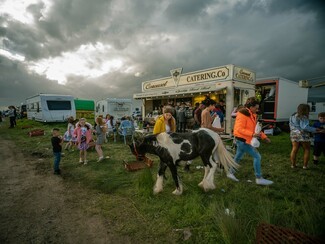
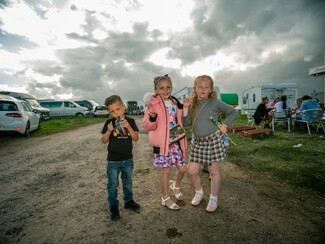
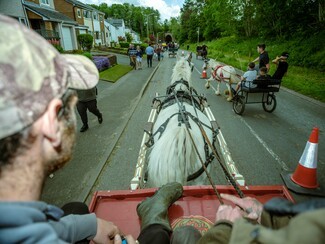
One of the most iconic moments of the Fair is the traditional bathing of the horses in the small River Eden. Away from the crowds, I met some young men washing their horses and riding up and down in the water. As the morning lights created the perfect settings to take some pictures, I looked at the their overconfidence and could not resist capturing the romantic wildness of the moment.
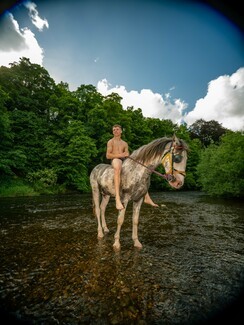
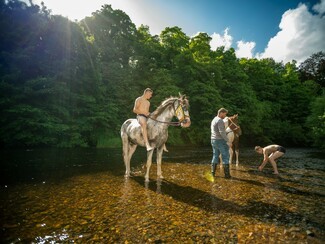
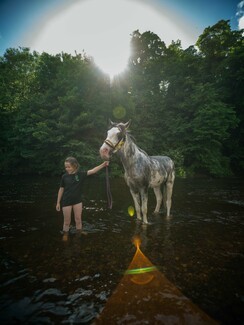
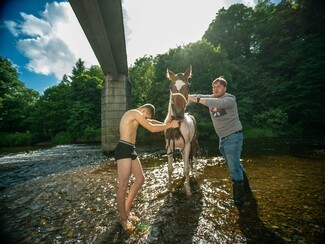
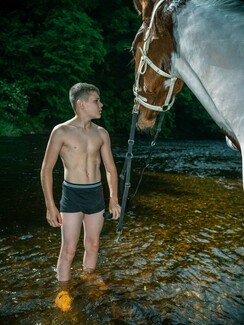
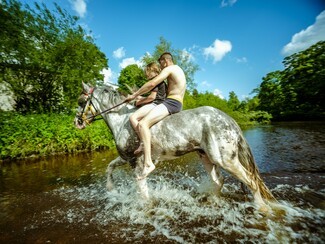
The atmosphere in the middle of the town was different.
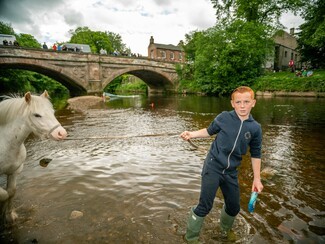
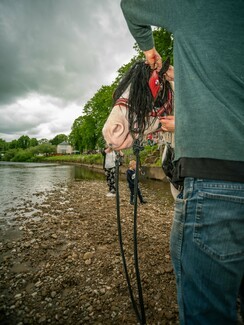
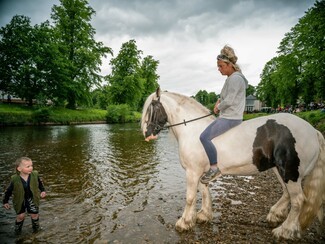
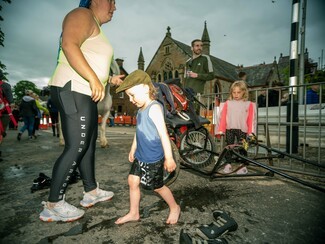

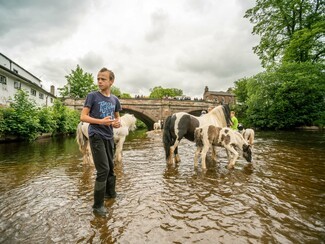
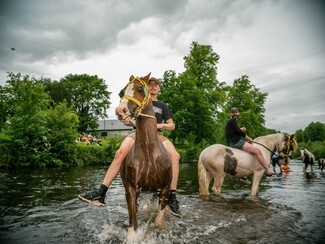
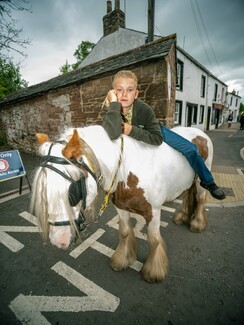
The other traditional event of the Horse Fair are the carts, horses and ponies being shown on the Flashing Lane, a closed off country lane that runs through the centre of the fair. Although I could not comprehend how the show was working, it was exciting to see the riders galloping right next to me.
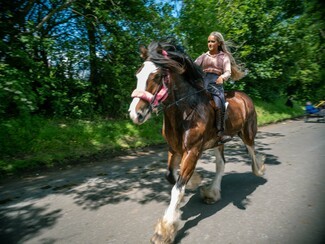
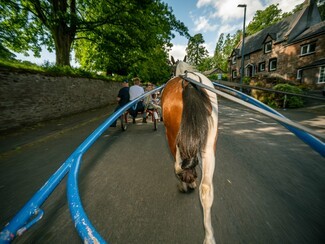
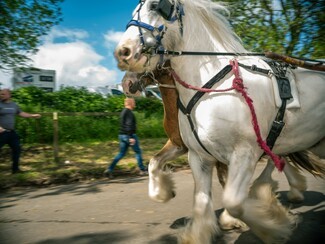
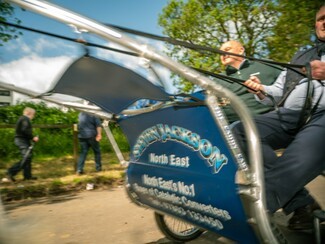
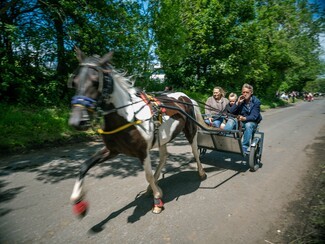
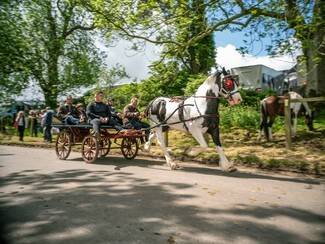
When I was preparing to travel to Appleby, I had expected to find a gloomy shift in mood due to the recent passing of the Police and Crime Commissioning Bill, which could endanger Traveller cultural practices and free movements, but I was wrong. I guess I had not considered the resilience of the Traveller communities. There was no sign of bleakness; it was the opposite: all I saw around me was kindness and a strong spirit to continue with life. If some local shops were closed down, people just used mobile chippies set up on one of the Appleby hills. Whenever I approached anyone for a photo, I was never refused, and I could always have a cheerful chat. This kindness and positivity were so compelling that I wished I could stay until the Fair's last day.
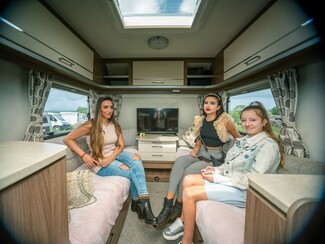
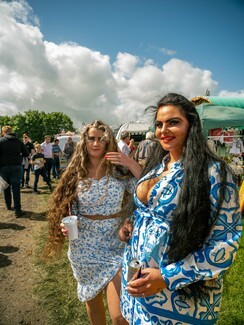
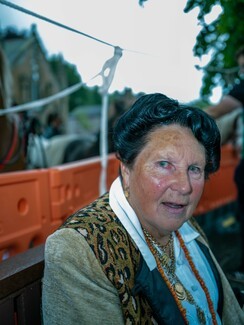
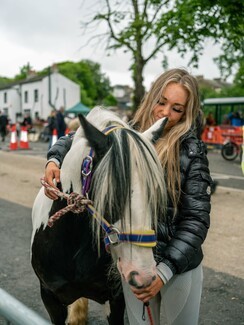
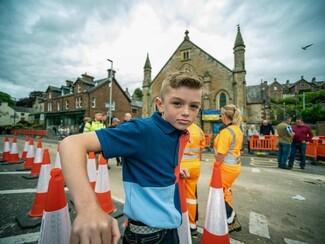
A few weeks ago, I was photographing the Gitan Pilgrimage in Saintes-Marie-de-la-Mer. I noted that many pilgrims stayed at home, and it was a general sense of change in people's commitments to follow religious traditions.
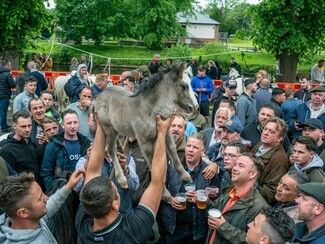
I felt none of these in Appleby. People traded horses as they have always done and will continue to do. The pony in the picture was, for example, sold for £800.
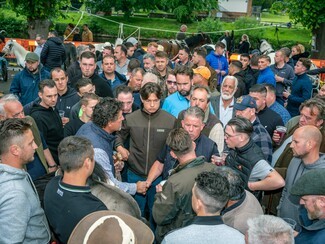
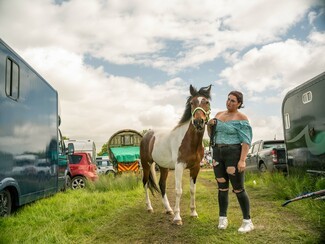
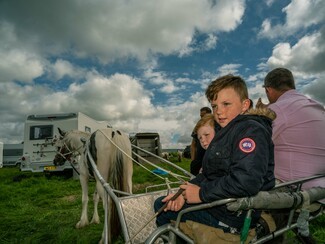

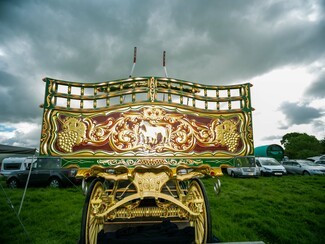
Bela Varadi bio
For decades I have been trying to integrate my two main interests; creating visual art and represent the life and interest of Roma people in Hungary. As a young adult, starting a career in journalism helped me to find an accommodating platform for my passion for visual and social representation. I was one of the founding members of Europe’s first Roma radio, RadioC. After working for various radio stations and online newspapers, I started working for television as a news reporter and broadcaster. Alongside my journalist job, I have created a documentary mini-series which won the grand prize at the Faces of Poverty Film Festival in 2010.
As the far-right Orban government started its crackdown on the public broadcaster, it became increasingly hard to maintain my editorial freedom. I resigned in 2011 and moved to the UK. Starting life in a new country forced me to reconsider how I could create socially conscious visual art. I started educating myself in photography and after years of experimenting, I started various projects about immigration, Roma journalism, and minority representations. My recent work "Gypsy Hill", and the year before the BLM protest in London was nominated in the professional photojournalism category at the Fine Art Photography Award 2021-2022 and has been published in various magazines.